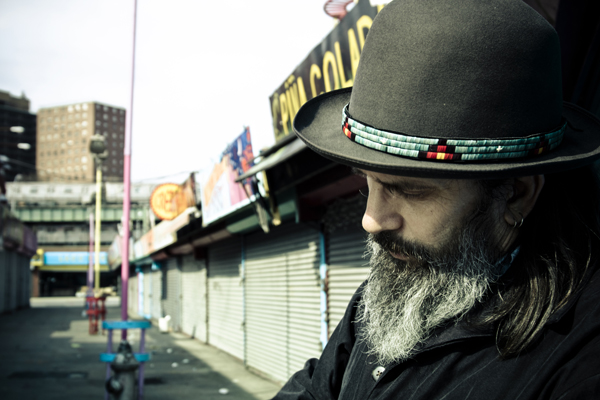Videos by American Songwriter
Earle volunteers that Justin and Ian, Justin’s slightly younger half-brother, didn’t have quite the same dad experience as John Henry is having. “I’m a lot more present,” he says. “I’ve grown up a lot. I’m not in the bathroom half the time, which I was when Justin was growing up. It’s definitely different. And there’s gonna be issues with my older sons, because they’re gonna know the difference. They’re gonna see the difference. We’ll probably have to have conversations about that at some point.”
Earle doesn’t expect the household to revolve around his art. But forward-looking, long-haul musician that he is, he’s got practical reasons for keeping multiple plates revolving in the air.
“Part if it is, I think, just to let people know you’ve got a record out there and that you’re still alive requires more work than it used to,” says Americana’s premiere politically pointed, roots-rocking, urban folk-reviving singer-songwriter,“because the traditional radio, big chains of record stores, all of that, that doesn’t exist anymore.”
There’s more to it than that, existentially speaking. The Texas-bred Nashville expat’s recent buzz of activity also has something to do with an experience he very nearly had some years back, and will without a doubt have someday – in a word, dying.
By now, the story’s been told and told and told again. After the clear-eyed, populist country rock of Earle’s 1986 major label debut, Guitar Town, took the Guitar Town by storm, he spent the first half of the ‘90s off the grid and in the throes of addiction. By his own admission, death seemed imminent.
“I believe I was spared for something, because I tried too f***ing hard to die,” he shares, wryly acknowledging that it can sound a little out there to hear him, of all people, talk about a spiritual sense of calling. “But I’m no longer arrogant enough to think that I’m gonna necessarily know what it is when I do it. I just wake up in the morning and suit up and show up and try to make sure I don’t miss it, whatever the f*** it is.”
With a hearty laugh, he adds, “And it’s one of the reasons I do all this shit, just to make sure I don’t miss it.”
Death, as it happens, is also central to Earle’s first novel and his T Bone Burnett-produced fourteenth studio album, although this calls for clarification. Since Earle returned to recording just over a decade and a half ago, he’s been turning out the sort of albums that make a point, that bear the clear fingerprints of a serious, thinking artist and satisfy his serious, thinking audience.
“Most of my records exist because I decide there’s some larger thing I want to say, or some musical thing that I want to explore,” he reasons, “like the bluegrass record [The Mountain, which features the Del McCoury Band] was about that … The Revolution Starts … Now and Jerusalem are overtly political records, not any doubt about it.”
The title shared by Earle’s first album of original material in four years – for him, a long time to go without releasing new songs – and the new book – which he started seven or eight years ago – is borrowed directly from an exaggeratedly fatalistic-sounding honky-tonk blues number that’s come to be viewed as a haunting musical coda to Hank Williams’ life: “I’ll Never Get Out Of This World Alive”.













Leave a Reply
Only members can comment. Become a member. Already a member? Log in.